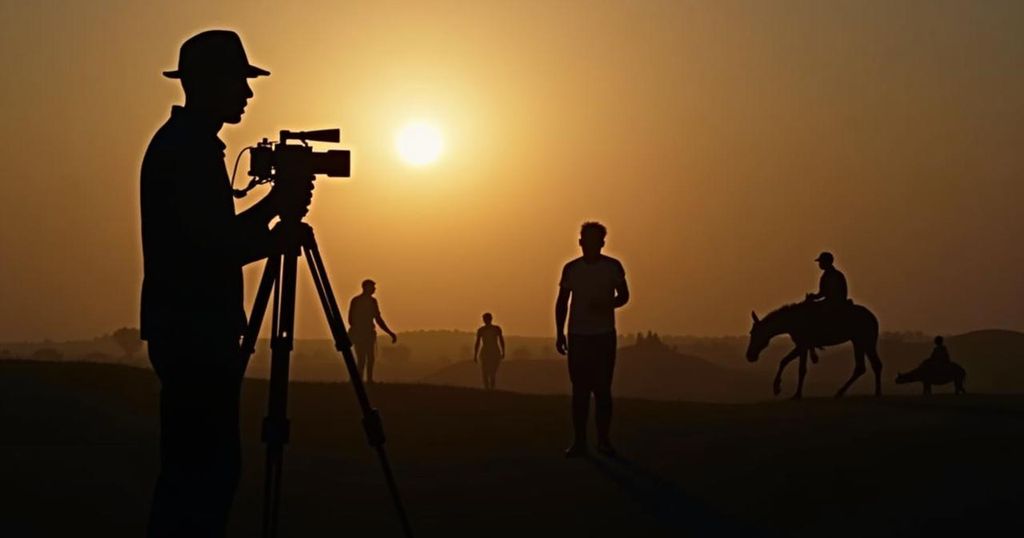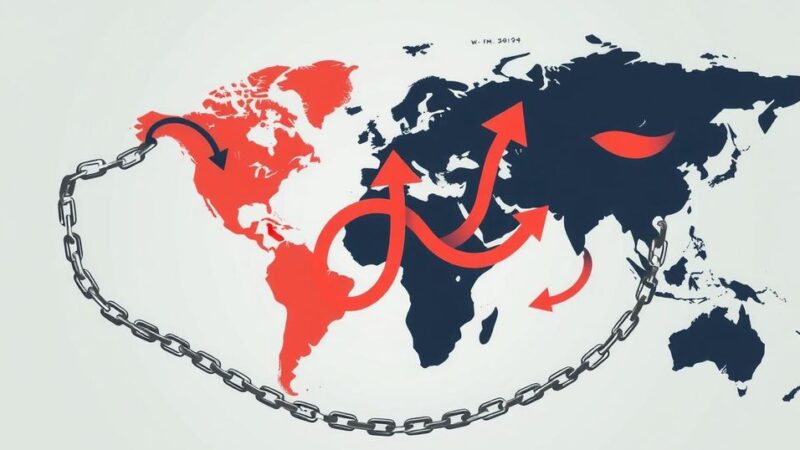Wassim Nasr, a journalist for France 24, is under investigation by the prosecutors of Burkina Faso, Mali, and Niger for alleged support of terrorism through his reporting. France 24 and various international journalist organizations defend Nasr, asserting that such allegations threaten press freedom in a region marked by violence and censorship.
Wassim Nasr, a journalist for France 24 specializing in jihadist and extremist movements, is currently under investigation by the prosecutors of Burkina Faso, Mali, and Niger. On September 25, these prosecutors jointly announced through their national media that Nasr’s reporting has been interpreted as promoting and providing support for terrorist actions occurring in the Sahel region. In a response to this accusation posted on X, Nasr defended his reporting work, stating, “I have been reporting on this subject for 15 years, I have disturbed many people, but I have the luxury of being in a country where this profession remains protected.” Furthermore, Amaury Guibert, the Director of France 24, publicly backed Nasr, expressing strong condemnation of the allegations. He stated, “France 24 denounces the serious, unfounded accusations made by Burkina Faso, Mali, and Niger against the journalist Wassim Nasr. These legal proceedings mark another stage in the obstruction of press freedom suffered by local colleagues and international media in this region, which has been described as a ‘black hole of information’.” It is noteworthy that France 24 faced previous suspensions from broadcasting in Burkina Faso in March 2023 and in Mali in 2022. The International Federation of Journalists (IFJ) has also shown solidarity with Nasr, asserting, “We stand in full solidarity with Wassim Nasr and call for these baseless accusations against him to be dropped immediately. Criminalizing a journalist for their sources and reporting is a clear violation of international standards on press freedom,” emphasizing the need for journalists to conduct their investigations without the threat of judicial repercussions. This situation highlights the precarious nature of journalistic work in areas plagued by violence and the challenges international media outlets face in reporting on sensitive matters such as terrorism.
The case of Wassim Nasr illustrates the increasing dangers faced by journalists operating in regions affected by extremist violence, especially where freedom of press is under threat. The Sahel, which includes countries like Burkina Faso, Mali, and Niger, has become known for its security issues related to radical groups. These countries have previously imposed restrictions on media activities, contributing to what some have termed a ‘black hole of information.’ The actions against Nasr can be seen as part of a broader pattern of intimidation directed at journalists who report on contentious topics, raising significant concerns regarding press freedoms and the safety of reporters in conflict zones.
The investigation of Wassim Nasr by authorities from Burkina Faso, Mali, and Niger marks a troubling chapter for press freedom in the Sahel region. As international organizations, including France 24 and the IFJ, rally in support of Nasr, the case underscores the urgent need to protect journalists from political persecution based on their reporting. This situation emphasizes the critical importance of allowing media professionals to investigate and report on sensitive issues, such as terrorism, without interference or fear of retribution.
Original Source: www.ifj.org







